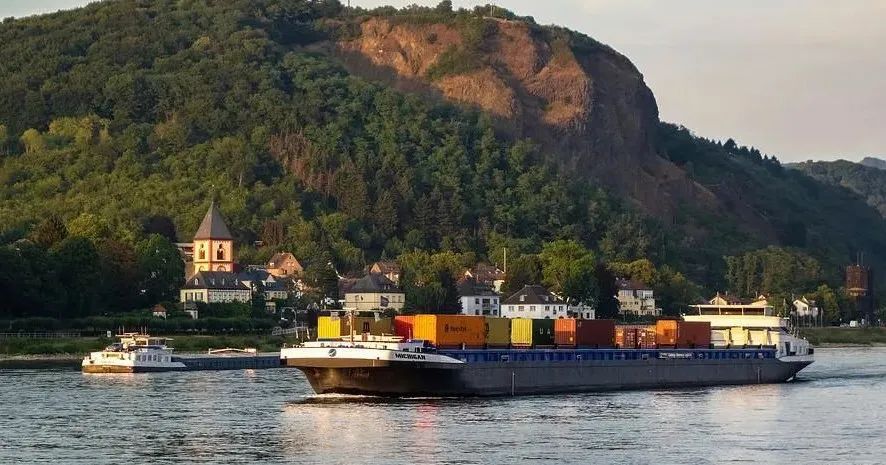由于内陆地区拥堵,以及在俄罗斯决定削减天然气供应后,集装箱运输需求与煤炭需求竞争,欧洲的驳船附加费飙升了150%。
欧洲主要驳船运营商Contargo宣布,从9月1日起,将把每运送一个满载或空集装箱的紧急附加费(emergency surcharge)从10欧元提高到25欧元,这给面临莱茵河关闭一周的托运人带来了新的痛苦。
Contargo表示:“除了海港已有的大量问题(船舶延误、集装箱接收受限等)外,严重的瓶颈继续影响我们在铁路网络和内陆航运方面的服务。”
“集装箱驳船运输不得不与煤炭和谷物运输竞争有限的运力。莱茵河及其支流持续的极低水位增加了对额外船舶的需求,并将价格推高到临界水平。”
由于降雨一个月来首次推高了莱茵河的水位,Kaub河段的水位达到了100厘米,驳船用户经历了短暂的喘息。

然而,有消息人士称,这并不能缓解拥堵,因为虽然河道关闭后有更多的驳船在行驶,但很多驳船的运力基本没有得到充分利用。一位驳船船东表示:“在低水位之前,一艘驳船可以运输近5000吨的货物,但现在同样的货物被分散到三至四艘船上。”
“在内陆码头更换驳船通常是一项耗时的操作,一艘5000吨的驳船通常需要两天左右的时间来运输。现在,同样数量的货物将由不同的船舶运送,大约需要一周的时间。”
集装箱运输也存在类似问题,许多驳船原本能装载200个集装箱,而目前仅能运载65个。
整个深海码头也感受到了这种影响,因为更换驳船导致效率低下,起重机和工人在已经“严重紧张”的市场和泊位容量中闲置。
驳船的替代方案仍然有限,由于水位较低,铁路运力已被超额预订,而建筑施工和火车取消则加剧了拥堵。
Contargo表示,其正试图通过为驳船用户创造额外的运力来弥补这一损失,但其指出,驳船运输仍“遭受货舱短缺的困扰”。
消息人士称,这种短缺并不是由于未充分利用,而是由德国对煤炭运输的需求推动的,因为德国希望阻止俄罗斯切断天然气供应。
来源:搜航网